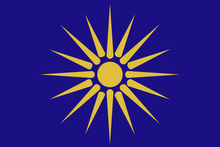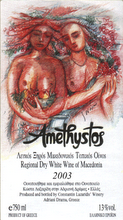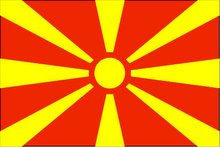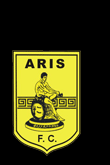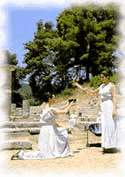 Written by Angela Carras President The Macedonian Society of Great Britain.
Written by Angela Carras President The Macedonian Society of Great Britain.Dear Sirs,
Following the placement of a two-page advertisement in The Times (as well as other newspapers in Europe) on Thursday 6th February 2008 by the government of the former Yugoslav Republic of Macedonia (FYROM) I feel obliged to point out that the advert is purposely misleading and could therefore be described as propaganda. It is implied that the Hellenic Republic is objecting to their membership of NATO unjustly and in contravention of the Interim Accord signed in 1995. However it is clearly stated in Article 11 of that agreement that the Hellenic Republic reserves the right to object if an application of membership is made under any name other than “the former Yugoslav Republic of Macedonia” as defined in UN Security Council Resolution 817 (1993).
By having signed the interim accord, it can be inferred that FYROM accepted that there was a valid reason for the naming dispute. Common sense dictates that for this matter to be resolved requires the adoption of alternatives to their constitutional name “Republic of Macedonia” and the short form of “Macedonia”. Since their government refuses to accept any alternative name in international relations, it is their own doing that Hellenic government is forced to veto their entry to NATO, despite that being in against the military and socio-economic interests of the Hellenic Republic itself.
I would also like to take this opportunity to address their proposal to adopt an alternative name to be used ONLY in direct relations with the Hellenic Republic. This is clearly a preposterous solution since it in no way resolves the essence of the dispute, which is that of exclusive claim to the name Macedonia.
I am a Macedonian and the President of the Macedonian Society of Great Britain. I was born in Thessaloniki, the capital of the province of Macedonia in Greece. Thessaloniki is an ancient city named after the half-sister of Alexander the Great. He is the national hero who personifies the glory of Ancient Macedonian history, and a hero of the entire Greek speaking population since he conquered a huge empire to which he spread the Greek language and civilisation. We are proud of this achievement much like the British are proud of their own past empire which spread their influence and civilisation. I am a Macedonian, however I am in no way identified with or related to the newly formed independent state referred to as “the former Yugoslav Republic of Macedonia” ; I am instead insulted by the fact that I cannot be known as a Macedonian without being identified by others as related to FYROM. My identity has been usurped. “Where is the justice ?”, to paraphrase their own words.
Why is it so unacceptable for FYROM to be internationally known by a name which differentiates them either geographically or by their Slav ethnicity ? Geographically speaking the territory that falls within their sovereignty is only the northern part of the region historically known as Macedonia. In fact the largest part of their country has only been referred to as Macedonia since the 1950s, previously being called Vardarska Banovina as part of the Kingdom of Yugoslavia.
The Hellenic Republic is definitely not hostile and is evidently very willing to have good relations with its neighbour and promote trade and business. Every effort has been made to help resolve this issue without sticking to untenable positions and taking a pragmatic approach. However in the meantime FYROM has promoted the use of the names “Republic of Macedonia” and “Macedonia” and this has done nothing but make the situation more difficult to resolve. My only hope is that when an alternative name is finally adopted internationally, since that is the only possible resolution to this issue, that the media will promote it and that this issue will be finally laid to rest.
Yours faithfully,
Angela Carras President The Macedonian Society of Great Britain
Interim Accord signed in New York in 1995 Article 11 1. Upon entry into force of this Interim Accord, The Party of the First Part agrees not to object to the application by or the membership of the Party of the Second Part in international, multilateral and regional organizations and institutions of which the Party of the First Part is a member ; however, the Party of the First Part reserves the right to object to any membership referred to above if and to the extent of the Party of the Second Part is to be referred to in such organization or institution differently than in paragraph 2 of the United Nations Security Council resolution 817 (1993).
UN Security Council Resolution 817 (1993) Paragraph 2 Recommends to the General Assembly that the State whose application is contained in document S/25147 be admitted to membership in the United Nations, this State being provisionally referred to for all purposes within the United Nations as "the former Yugoslav Republic of Macedonia" pending settlement of the difference that has arisen over the name of the State ;

